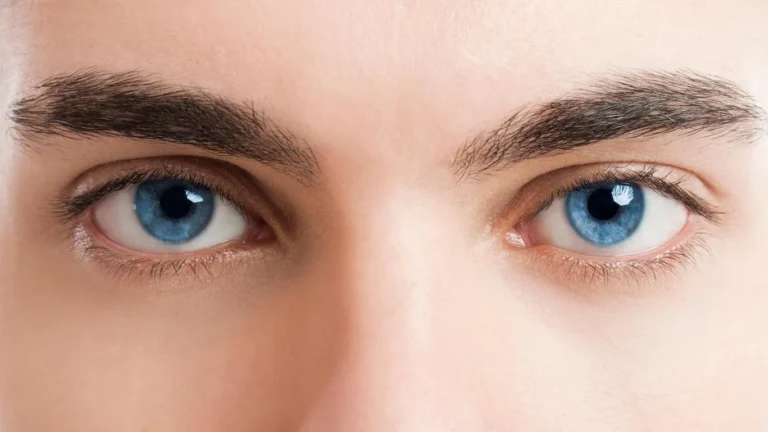High Blood Pressure and Jaw Pain: Hidden Danger You Shouldn’t Ignore
If you’ve ever felt a weird throbbing in your jaw and brushed it off as dental drama, you’re not alone. But here’s the kicker—there might be more to it. As an internal medicine physician specializing in hypertension management, I’ve had more than a few patients come in with symptoms that didn’t quite fit the textbook. One of the more overlooked links? High blood pressure and jaw pain. Sounds odd, right? But stick with me—there’s a lot more connecting your circulatory system and your jawline than you might think.
Understanding High Blood Pressure: More Than Just Numbers

We toss around the term “high blood pressure” like it’s no big deal—but it kind of is. Officially known as hypertension, it’s a condition that means the force of your blood against artery walls is consistently too high. Over time, this pressure damages blood vessels and can lead to all sorts of problems, from strokes to kidney issues.
In my clinic, I’ve seen patients who swear they feel fine—until we put the cuff on and bam, their numbers say otherwise. And then there are those who come in with odd complaints: headaches, dizziness, even jaw discomfort. That’s when I start digging deeper.
What Happens in Your Body When Blood Pressure Rises?
When your blood pressure spikes, your heart and blood vessels go into overdrive. This strain affects not just your heart but your entire body—including the tiny blood vessels that feed your facial muscles and nerves. Think of it like plumbing—if the pressure’s too high, those small pipes are the first to protest.
- Muscle tension: Increased blood pressure can cause general muscle tension, especially around the neck and jaw.
- Nerve sensitivity: Changes in circulation can irritate cranial nerves that affect the jaw, leading to aches or discomfort.
- Reduced oxygen flow: If blood flow is compromised, even slightly, your tissues—jaw included—can start to signal distress.
Jaw Pain: Not Just a Dentist’s Problem

We typically think of jaw pain as a dental or TMJ issue—and often it is. But as someone who’s treated a range of cases, I can’t stress enough: don’t ignore persistent or unexplained jaw discomfort. Especially if you’ve got a history of—or risk factors for—high blood pressure. There’s a physiological link here that isn’t widely discussed.
Can High Blood Pressure Actually Cause Jaw Pain?
Short answer: yes, it can. Here’s how it plays out in real life. High blood pressure doesn’t directly “hurt” your jaw, but it contributes to a cascade of events that might:
- Hypertension increases vascular resistance, reducing smooth blood flow to peripheral tissues—including the facial and jaw area.
- The sympathetic nervous system goes into overdrive, which may lead to teeth grinding (bruxism), muscle clenching, and eventually pain.
- Some patients experience migraines or tension-type headaches that radiate to the jaw—especially around the temporomandibular joint (TMJ).
I remember one patient, mid-40s, high-stress job, had been grinding her teeth for years. We started tracking her blood pressure and guess what? Her spikes often correlated with flare-ups of jaw pain. With a few tweaks in her hypertension treatment and stress management, the pain started easing up. Sometimes the solution isn’t in a mouth guard—it’s in a BP cuff.
What Else Might Be Going On?

If you’ve got both high blood pressure and jaw pain, it’s worth considering other possibilities too. This is where experience counts—because I’ve seen how these symptoms can signal something more serious, like:
- Angina: Chest pain caused by restricted blood flow to the heart can sometimes radiate to the jaw. It’s sneaky but potentially dangerous.
- Carotid artery issues: The arteries in your neck can affect facial sensations if they’re under strain.
- Stress-induced TMJ flare-ups: Chronic stress elevates blood pressure and leads to clenching—an unfortunate combo for your jaw health.
Bottom line? Your jaw might be trying to tell you something. Don’t ignore it just because it’s not throbbing in your chest or pounding in your temples. If you’ve got high blood pressure, any new, unexplained symptom deserves a second look.
Why the Connection Between High Blood Pressure and Jaw Pain Is Often Missed
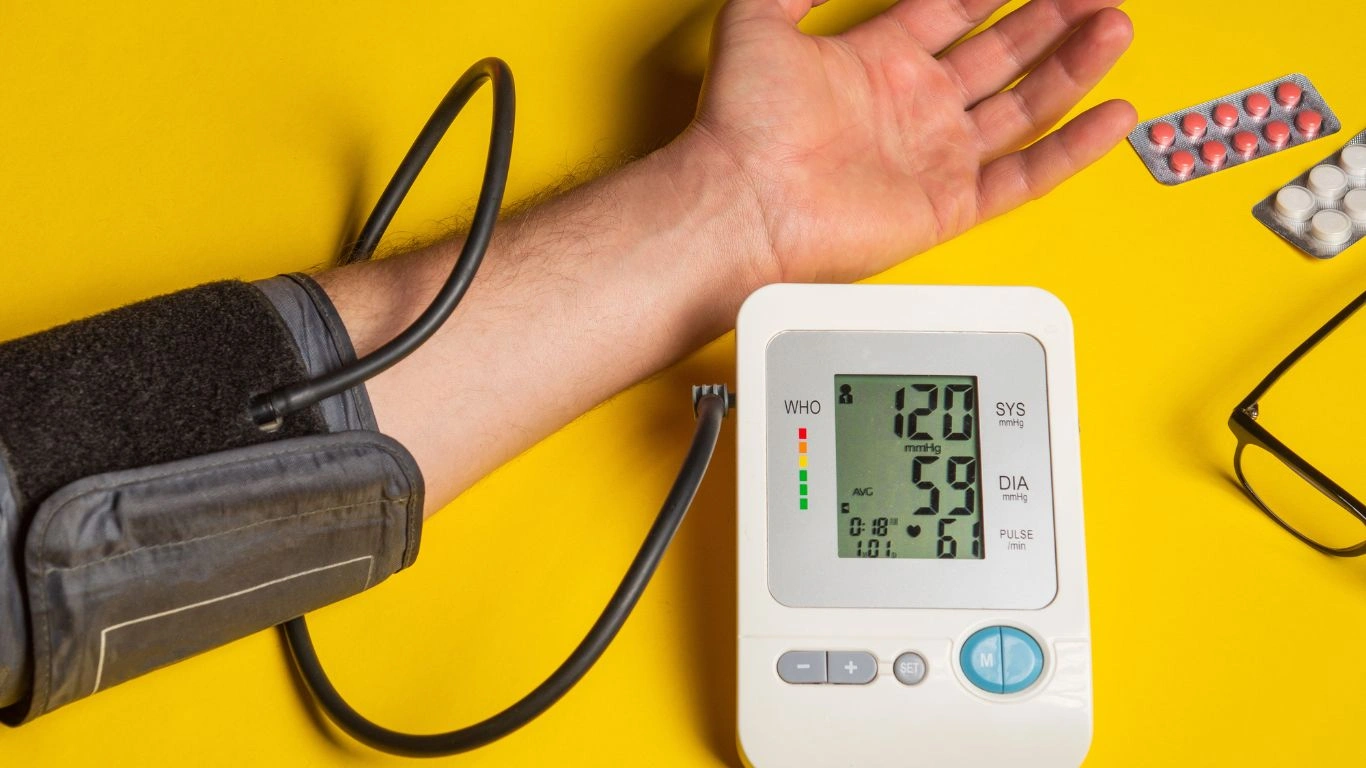
Let’s be honest—most people (and even some healthcare providers) don’t immediately connect jaw pain with high blood pressure. It’s just not on the radar. I get it. Jaw pain? That’s the dentist’s territory. Hypertension? That’s your primary care doc’s job. But here’s the thing: your body doesn’t operate in silos. Everything is connected, and if there’s one thing I’ve learned in practice, it’s that the symptoms people ignore often tell the biggest stories.
I once had a patient who swore up and down their jaw pain was due to a “weird pillow.” Turns out, their blood pressure had been quietly creeping up for months. Once we brought it under control, the jaw discomfort lessened significantly. It wasn’t the pillow. It was the pressure—literally.
Medical Silos and Missed Opportunities
Too often, patients bounce between specialists—ENTs, dentists, neurologists—looking for answers when the root issue is cardiovascular. That’s why it’s so important to take a step back and look at the full picture. As a hypertension specialist, I make it a point to ask about all symptoms, even the ones that seem unrelated. You’d be surprised how often “random” jaw pain is actually part of the hypertension puzzle.
- Medical disciplines often miss cross-symptom connections.
- Patients may downplay symptoms they think aren’t “urgent.”
- Time-crunched appointments sometimes skip over deeper assessments.
Which is exactly why awareness matters. The more you know, the better you can advocate for your health.
Stress, Hormones, and the Jaw-BP Connection
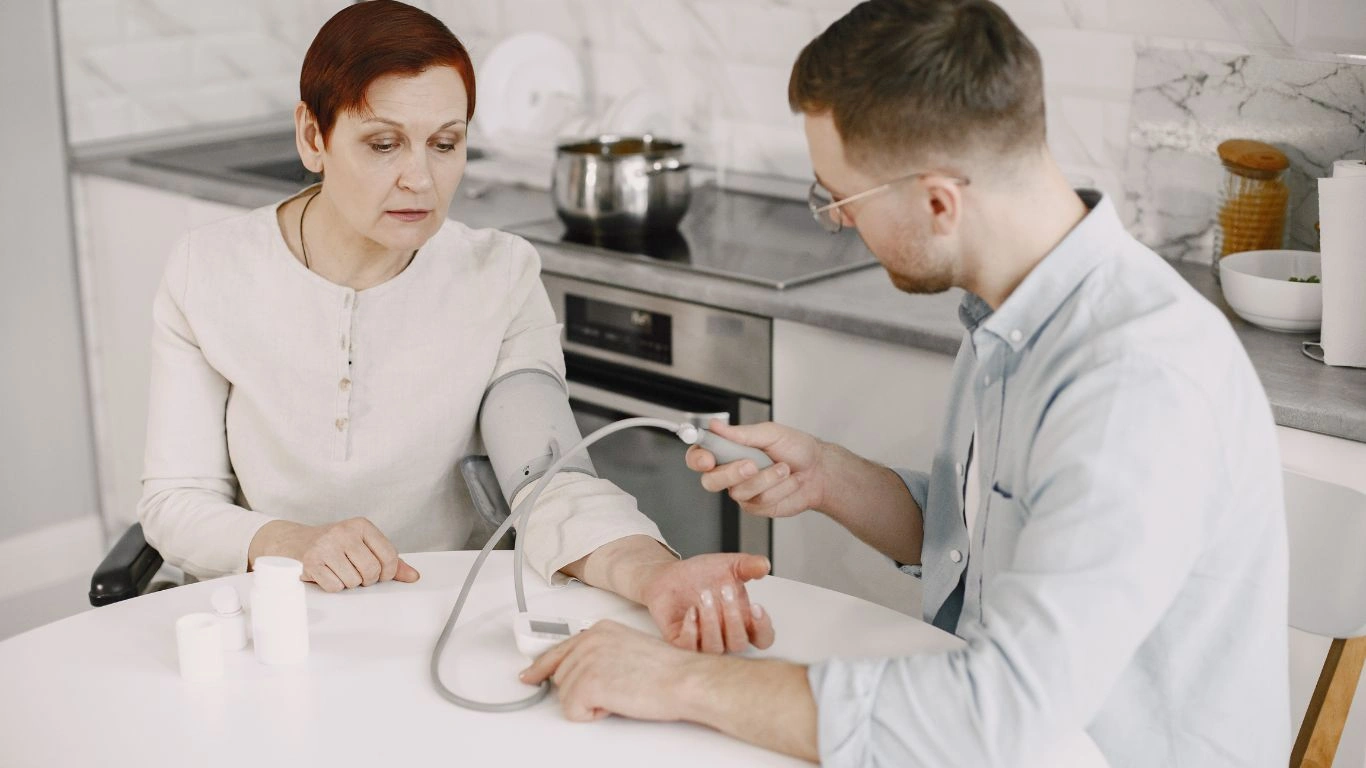
If I had a dollar for every time stress was behind a blood pressure spike, I’d have my own coffee blend by now. Seriously, stress is a major culprit—and it doesn’t just mess with your mood. It wreaks havoc on your entire body, from your adrenal glands to your blood vessels to—you guessed it—your jaw muscles.
How Cortisol Affects Blood Pressure and Jaw Tension
When you’re stressed, your body releases cortisol and adrenaline. These hormones ramp up your heart rate and constrict your blood vessels. That alone can push your blood pressure higher. But cortisol also contributes to muscle tension, especially in the neck, shoulders, and face. Ever notice how you clench your jaw when you’re tense? That’s your body trying to hold it all in. Unfortunately, your blood vessels don’t appreciate the pressure.
- Cortisol increases fluid retention and vascular tone, boosting BP levels.
- Adrenaline speeds up the heart and tightens vessels, putting more stress on cranial nerves.
- Chronic tension leads to pain in areas like the temporomandibular joint (TMJ).
One of my patients, a young mom balancing work, kids, and aging parents, came in with jaw pain and headaches. Her BP was 154/92. We addressed both the physical and emotional load she was carrying—and it made all the difference. Lifestyle matters more than you think.
When to Worry: Red Flags You Shouldn’t Ignore

Now, not every jaw ache means your blood pressure is dangerously high. But some symptoms are worth a closer look. I always tell my patients: trust your gut. If something feels “off,” don’t wait it out—get it checked.
Watch for These Signs
- Jaw pain that comes on with activity: Especially if it feels like pressure or radiates to the neck or arm. This could be angina masquerading as TMJ.
- Unexplained jaw tightness paired with high BP readings: May indicate a systemic vascular response.
- Persistent headaches, dizziness, or vision changes: These may accompany hypertensive urgency and deserve immediate evaluation.
- Night-time jaw clenching and sleep disturbances: Could be signs of stress-induced hypertension and bruxism.
In medicine, we call these “atypical presentations”—and they’re more common than you’d think, especially in women. I’ve seen heart disease show up as fatigue and jaw tightness more times than I can count. It’s not about being paranoid—it’s about being informed.
Steps to Take If You Suspect a Link Between Jaw Pain and High Blood Pressure
Okay, so let’s say you’ve read this far and you’re thinking, “Hmm, maybe my jaw pain isn’t just from chewing gum too much.” Here’s what I usually recommend to patients who are in that grey zone between curiosity and concern:
Start Tracking
- Use a home BP monitor: Take your readings twice a day—morning and evening. Log any symptoms alongside.
- Note your jaw pain patterns: Is it worse in the morning? After stressful meetings? During workouts?
See the Right Specialist
- Consider talking to both a primary care doc and a dentist—but make sure someone looks at the bigger picture.
- If you’re already diagnosed with hypertension, bring up the jaw pain at your next visit.
Reduce the Load
- Manage stress proactively: Breathing exercises, short walks, even short phone breaks during the workday can help.
- Limit salt and caffeine: These can both raise BP and muscle tension.
- Stay hydrated: Dehydration can worsen both vascular tension and muscular aches.
I’ve always believed healthcare works best when it’s collaborative. If something feels off—even if it’s “just jaw pain”—speak up. Sometimes, it’s the little symptoms that lead to big discoveries.
How to Treat the Overlap of High Blood Pressure and Jaw Pain
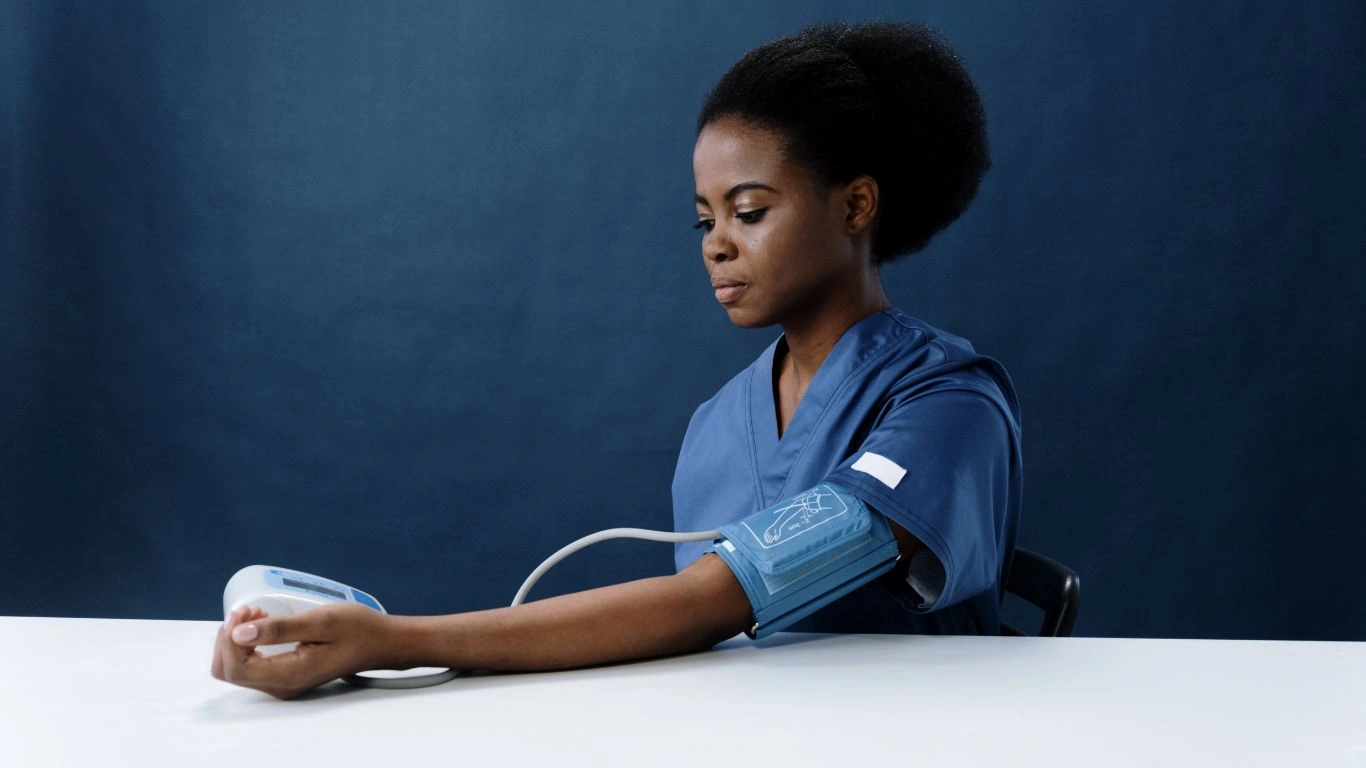
By now, you’re probably realizing that high blood pressure and jaw pain aren’t so unrelated after all. The tricky part? There’s no one-size-fits-all fix. But there are practical, research-backed ways to manage both, and it often starts with a shift in mindset. We’re not just treating numbers on a screen—we’re treating a whole person.
I’ve had patients with BP readings in the 150s who didn’t even feel it, but they did feel their jaw tightening or their temples throbbing. So we worked backwards: addressing their pain, identifying stressors, adjusting medications if needed. The result? Better numbers—and way fewer ice packs on their jaw at night.
Integrated Care Works Best
When you deal with both high blood pressure and jaw discomfort, your care plan should cross specialties. Think team effort:
- Primary Care: Oversees your overall health and BP meds.
- Cardiology: Especially if jaw pain could be referred cardiac pain.
- Dentistry or TMJ Specialist: To rule out (or manage) structural jaw issues.
- Psychology or Behavioral Therapy: For addressing stress triggers and managing clenching behaviors.
I love seeing that lightbulb moment when someone realizes they don’t have to live with chronic tension. A bit of coordination, some targeted treatment, and suddenly, life feels less clenched—literally and figuratively.
Lifestyle Tweaks That Really Make a Difference
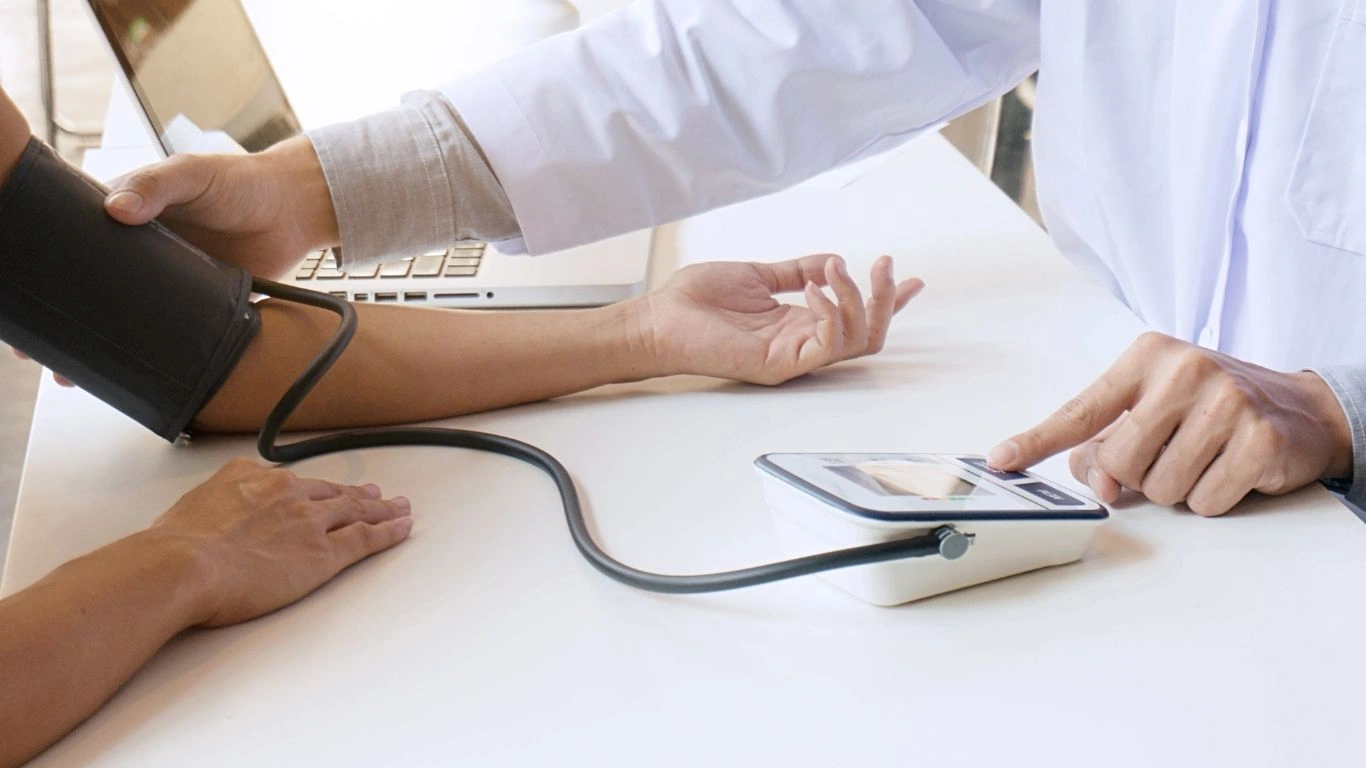
If there’s one thing I always emphasize, it’s this: meds matter, but so do habits. Whether your jaw pain is from tension or your blood pressure is spiking from lifestyle factors (hint: it often is), changing a few daily patterns can help. No drastic overhaul needed—just simple, consistent shifts.
My Go-To Tips for Patients
- Daily Stretching: Especially around the neck and jaw. I often recommend a warm compress at night followed by gentle jaw movement exercises. It helps unwind the day’s tension.
- Mindful Breathing: Sounds cliché, but diaphragmatic breathing lowers BP and relieves muscle tightness. Five minutes in the morning can reset your entire nervous system.
- Watch the Salt: Especially hidden sodium in canned or packaged foods. Less salt = less pressure = less pain.
- Cut the Caffeine Late in the Day: High caffeine intake can worsen bruxism and spike BP. Try swapping that 4 PM latte for a calming tea.
- Stay Consistent with Medications: Missed doses can lead to sudden spikes, which might be when your jaw pain flares, too.
One of my patients joked, “So you’re telling me I need to chill out and stretch like a yoga teacher?” And honestly—yes. There’s a reason those wellness habits have stayed around so long. They work.
Real Talk: High Blood Pressure Is a Long Game
Managing hypertension isn’t about quick fixes. It’s about understanding your body’s signals—including ones that might seem unrelated, like jaw pain. Every time you track your BP, make a small healthy choice, or pause before clenching your jaw in traffic, you’re investing in your long-term health.
I often tell my patients: hypertension doesn’t always scream, but it whispers. And those whispers show up in small ways—like morning jaw tightness, tension headaches, or a feeling of unease that you can’t quite explain. Listening to those whispers might just help you avoid bigger problems down the road.
So if this is you—if your jaw hurts, your BP’s been creeping up, and stress is your default setting—you’re not alone. You’re also not stuck. Start tracking. Talk to your doctor. Build a care team that sees the whole picture. And don’t underestimate the power of awareness—it’s often the first step to real change.
References
- National Institutes of Health (NIH)
- Health.com
- Mayo Clinic
- Centers for Disease Control and Prevention (CDC)
- American Heart Association
Disclaimer
This article is for informational purposes only and reflects the clinical experience and perspective of the author, an internal medicine physician. It is not intended to substitute for professional medical advice, diagnosis, or treatment. Always consult your healthcare provider with any questions you may have regarding a medical condition.

Dr. Gwenna Aazee is a board-certified Internal Medicine Physician with a special focus on hypertension management, chronic disease prevention, and patient education. With years of experience in both clinical practice and medical writing, she’s passionate about turning evidence-based medicine into accessible, actionable advice. Through her work at Healthusias.com, Dr. Aazee empowers readers to take charge of their health with confidence and clarity. Off the clock, she enjoys deep dives into nutrition research, long walks with her rescue pup, and simplifying medical jargon one article at a time.





